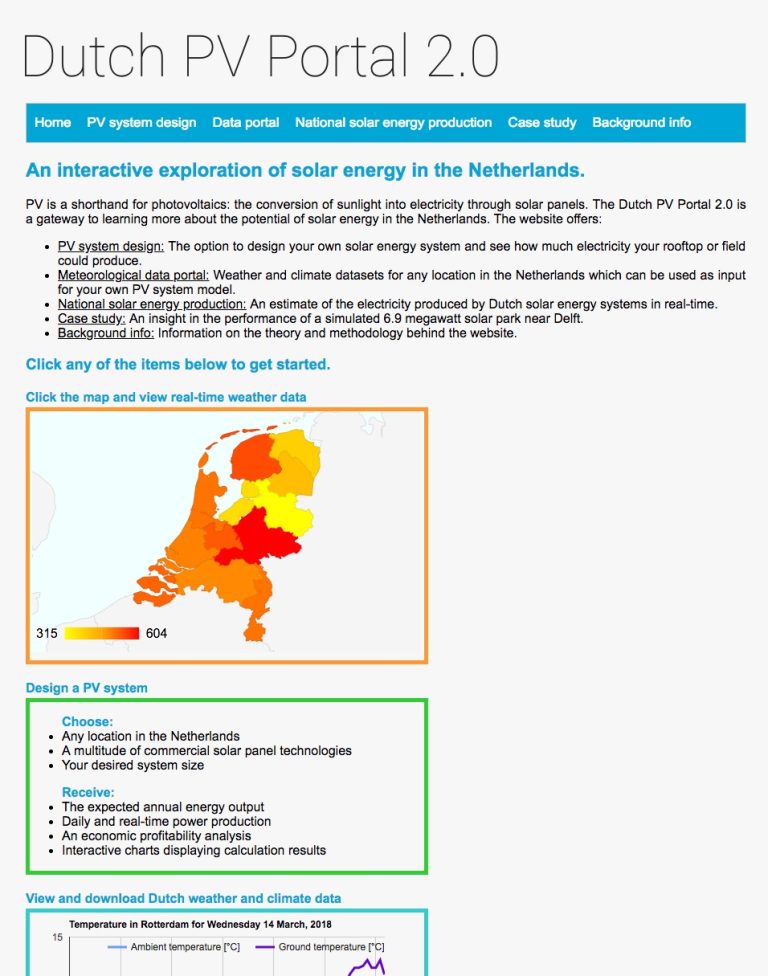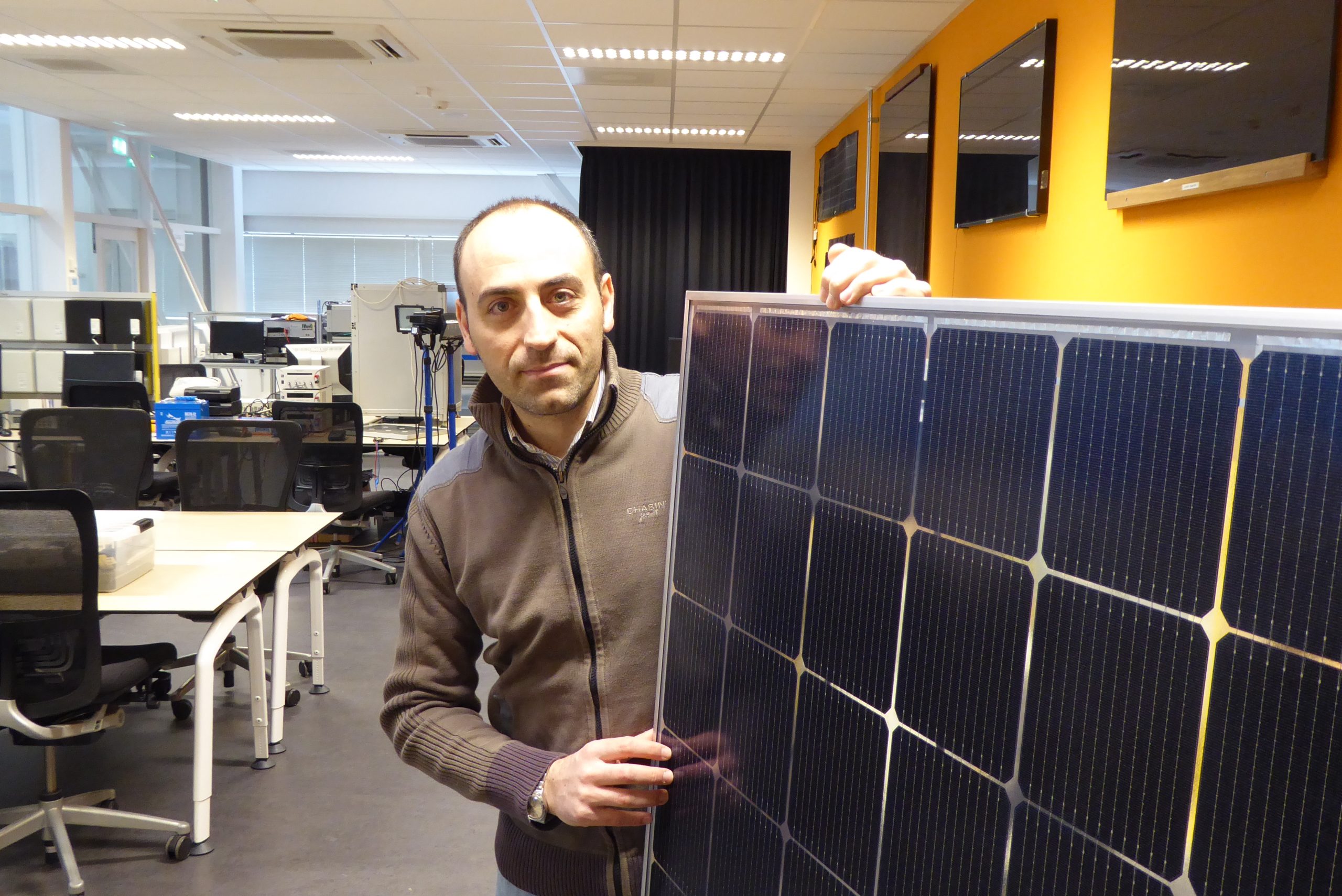The new Dutch PV Portal 2.0, initiated by Delft researchers, allows anyone to evaluate the production of a solar power system anywhere in the Netherlands. It will also show you the payback period.
Dr Olindo Isabella in the PV lab. (Photo: Jos Wassink)
Suppose you have three solar panels with 90 Watt peak power each on a small southwest facing roof in Delft. The Dutch PV portal calculates that averaged over a one-year period, the three panels will produce 708 kWh, which is 24% of the average Dutch household demand. The initial investment is € 1,090, and the profit made over 25 years is € 2,925. The website confirms Dr Olindo Isabella’s rule of thumb: if a household invests € 5,000 in solar energy, it will become self-sufficient in power.
As an Associate Professor of the Photovoltaic Materials and Devices (PVMD) department at the EWI Faculty, Dr Olindo Isabella has initiated and supervised the PV portal. The first version was made by the master student, Arianna Tozzi, in 2014. The updated version, made by another master student, Veikko Schepel, was launched recently.
The PV portal is aimed at: people working in the solar energy sector; citizens who want to find out what they may expect from PV panels on their roof; and at policymakers who can calculate the effect of a large-scale solar power installation.
The updated version combines the real-time and climate weather databases from the Dutch meteorological institute KNMI. It models the entire efficiency chain from photons-to-electrons to power conversion into AC. Thus, both instantaneous power production and energy yield can be shown for any location in the Netherlands.
 Screenshot PV portal.
Screenshot PV portal.The people behind this PV portal are not trying to sell you a PV installation – they only want to enable you to calculate its performance before you start. As no web designer or art director was involved, the factual style of the website offers text, graphs in primary colours and basic push buttons with no aspiration to dress up.
Dr. Isabella, who is also responsible for the department’s PV Laboratory, is already planning the next PV portal update. Among new additions, in version 3.0, he wants to include home battery usage, as storing your own PV power has become technically feasible and economically profitable.
Heb je een vraag of opmerking over dit artikel?
j.w.wassink@tudelft.nl


Comments are closed.